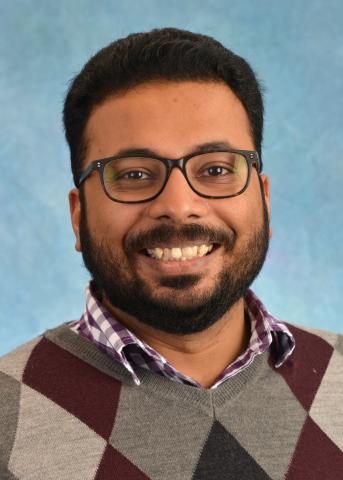Alagapan’s unique approach of integrating cutting-edge computational techniques to studying brain regions implicated in psychiatric disorders enabled his successful acceptance as a Georgia CTSA KL2 program participant.
Sankaraleengam (Sankar) Alagapan, a research faculty member in the Georgia Tech School of Electrical and Computer Engineering (ECE), has been awarded a highly competitive KL2 transition award from the Georgia Clinical and Translational Science Alliance (CTSA).
This recognition is designed to provide substantial support and foster the career development of junior faculty members at Emory University, Morehouse School of Medicine (MSM), Georgia Tech, and University of Georgia (UGA) who are committed to pursuing clinical and translational science (CTS) and research (CTR).
Alagapan, who works in the Sensory Information Processing Lab at Georgia Tech under the direction of Professor Christopher Rozell, is the first ECE researcher in over a decade to receive a KL2 award. Historically, accolades of this caliber have predominantly been granted to professionals in medical fields.
Alagapan’s unique approach of integrating cutting-edge computational techniques to studying brain regions implicated in psychiatric disorders enabled his successful application.
"My career goal is to bring cutting-edge computational tools to address clinically important problems, specifically in developing effective brain stimulation treatments informed by brain network function,” said Alagapan.
The proposed research, titled "Investigating Electrophysiological Dynamics in the Anterior Cingulate Cortex during Effort Evaluation," aims to make notable strides in understanding how the brain determines whether it's worthwhile to exert effort in achieving a task.
The project will investigate the anterior cingulate cortex, a region of the brain integral to a range of higher-level cognitive functions, such as attention allocation, reward anticipation, decision-making, and emotion. These functions are also impaired in many disorders like depression and the findings from this project will inform brain stimulation approaches to treat these disorders.
The KL2 program provides comprehensive support, including salary assistance, benefits, and a dedicated research technical budget, for up to two years. Additionally, Alagapan will receive tuition for the Master of Science in Clinical Research (MSCR) degree or Certificate Program in Translational Research (CPTR) curriculum.
Throughout the project, Alagapan will receive mentorship from professors Robert Gross in the Emory University School of Medicine's Department of Neurosurgery and Leonardo Bonilha in Emory’s Department of Neurology. This mentorship will offer him the opportunity to collaborate with clinicians and gain a deep understanding of clinically relevant problems that have a significant impact on patient well-being.
As a Georgia CTSA KL2 program participant, Alagapan will be required to dedicate at least 75% of his professional effort to research and research training activities, adhering to the guidelines established by the National Institutes of Health (NIH).
